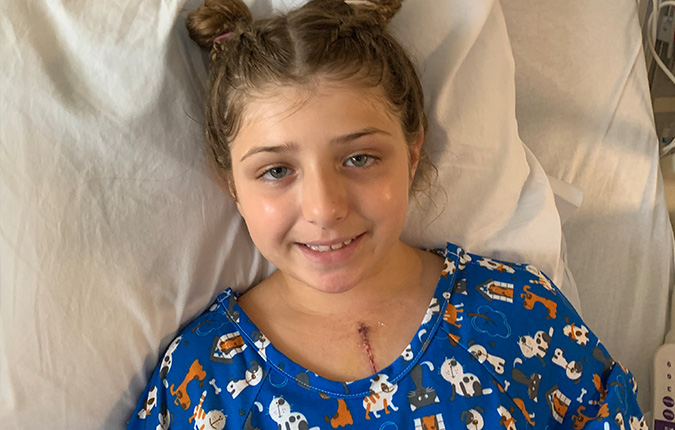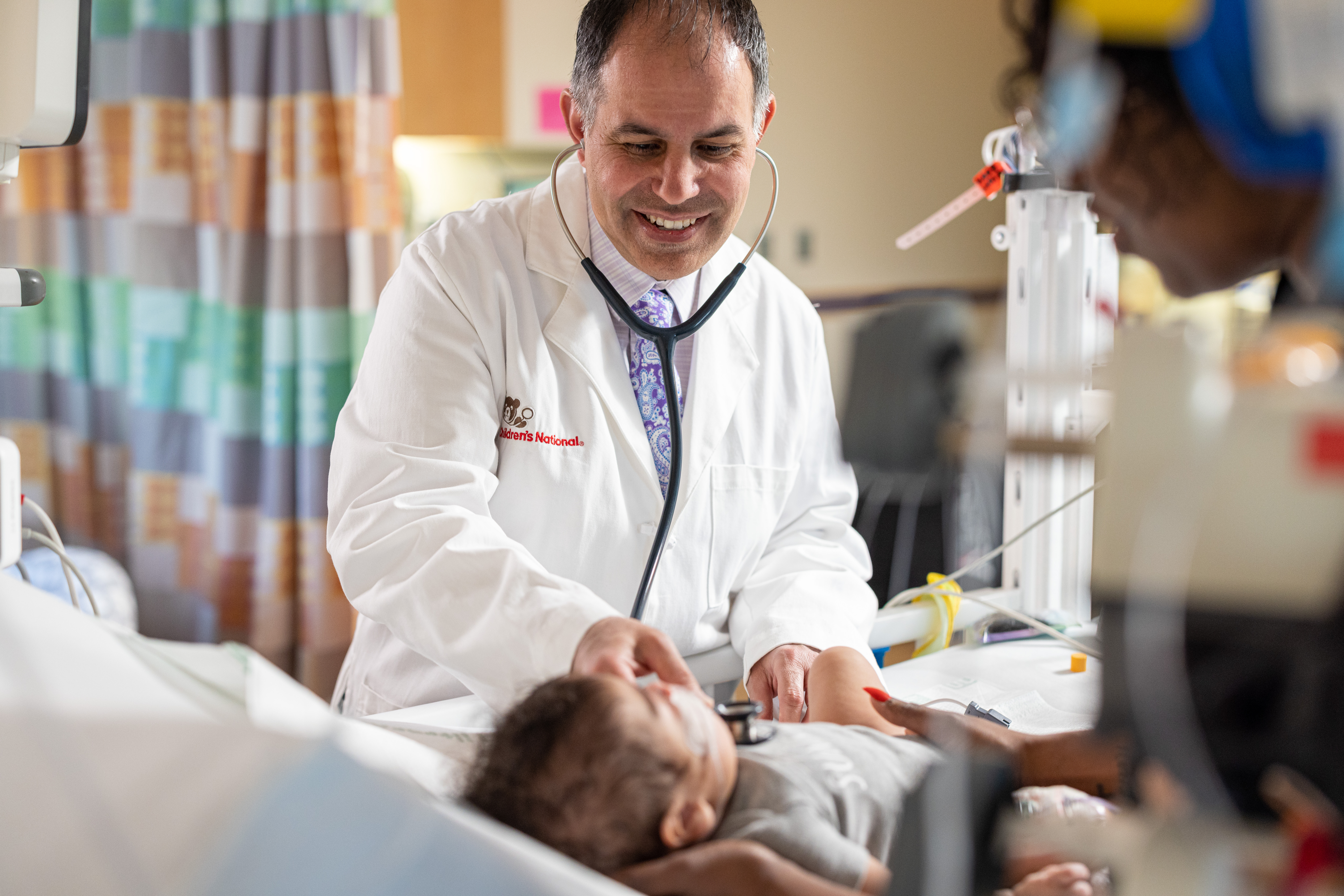Condition
Pediatric Transposition of the Great Arteries (TGA)
What You Need to Know
In TGA, your child’s aorta is connected to the right ventricle, and the pulmonary artery is connected to the left ventricle. This is the reverse of a normal heart.
Key Symptoms
The most common symptoms of TGA are:
- Blue skin color in the first hours or days of their lives
- Fast breathing
- Trouble breathing
- Fast heart rate
Diagnosis
Doctors typically diagnose TGA by:
- Pulse oximetry
- Chest X-ray
- Electrocardiogram (ECG)
- Echocardiogram (echo)
- Cardiac catheterization (cardiac or heart cath)
Treatment
Treatment may include:
- Medical management
- Cardiac catheterization
- Surgery
Schedule an Appointment
Our pediatric specialists provide personalized care for your child’s physical, mental and emotional health needs. Meet our providers and schedule an appointment today.
Frequently Asked Questions
What is transposition of the great arteries (TGA)?
What causes TGA?
What are the symptoms of TGA?
How is TGA diagnosed?
How is TGA treated?
What are the complications of TGA?
How will my child live with TGA?
When should I call my child's healthcare provider?
Meet the Providers Who Treat Transposition of the Great Arteries (TGA)
Departments that Treat Transposition of the Great Arteries (TGA)

Heart and Lung Center
Our expert pediatric heart team, including more than 40 subspecialties, offer advanced heart care and excellent outcomes for thousands of children every year.
Transposition of the Great Arteries Surgical Outcomes
Learn about some of the lifesaving surgeries our pediatric heart experts perform each year at Children's National. Find outcomes data here.

Help Kids and Make a Difference
Invest in future cures for some of life's most devastating diseases. Give today to help more children grow up stronger.














